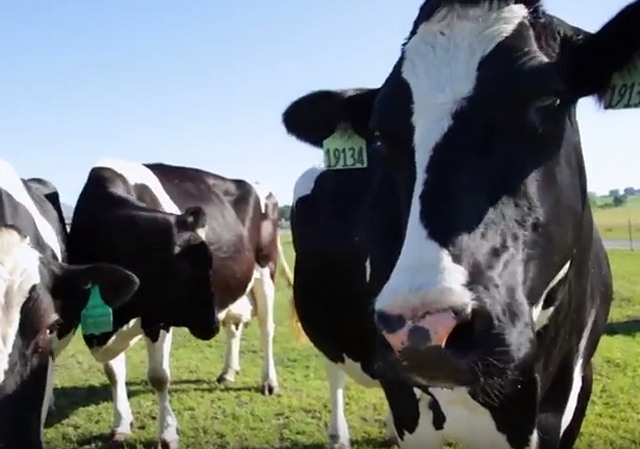The Irish Now Defending Their Iconic Cow Herds and Dairy Farms against Climate Cultists

One of my favorite treats is a warm roll dripping in real butter from Ireland.
Sadly, that may not be an option for me in the near future. A few months ago, Irish dairy products and the nation’s cow herds became the target of zero-carbon-emission climate cult policies.
Instead of cutting emissions, Ireland has continued increasing them and the biggest contributor is agriculture. Ireland’s 135,000 farms produce 37.5% of national emissions, the highest proportion in the European Union, and most of that comes from methane associated with belching by ruminant animals.Under a new government plan, agriculture must reduce emissions by 25% by 2030. Other sectors face even higher targets – transport must reduce emissions by 50%, commercial and public buildings by 40% – but the loudest protests have come from farmers.Cutting emissions by a quarter will drive many farms into bankruptcy and could force the culling of hundreds of thousands of cows, they say. “The mood is hugely frustrated,” said Pat McCormack, head of the Irish Creamery Milk Suppliers Association. “It’s very hard to quantify but there will be increased costs and reduced output.”
The push-back is now beginning to intensify. The president of Macra na Feirme, a volunteer organization representing a thriving community of 10,000 young people from rural Ireland, is protesting the proposed culling of 200,000 cows.
A GOVERNMENT report which proposes culling 200,000 Irish dairy cows is the wrong way to meet Ireland’s climate targets, the president of Macra na Feirme, Elaine Houlihan has said.Ms. Houlihan described the report which contained the proposal, to be implemented over a three year time frame, as a ‘complete kneejerk report’.“The solution to deliver sustainable results on climate targets for agriculture is emerging from our farmers and food producers based on the best practice as derived from experience, research and science backed by our world class agricultural scientists working on new solutions, that will deliver emissions reduction for the sector and not by unsustainable shortterm strategies like culling.
The Irish Creamery Milk Suppliers Association has warned the culling levels should be voluntary.
Pat McCormack told Newstalk Breakfast that “if there is to be a scheme, it needs to be a voluntary scheme. That’s absolutely critical because there’s no point in culling numbers from an individual who has borrowed on the back of a huge financial commitment on the back of achieving a certain target that’s taken from under him.Up to 65,000 dairy cows a year could be culled as the Government moves to bring the agriculture sector in line with climate targets, according to a report by the Irish Independent.An internal Department of Agriculture briefing paper sought to find ways to help the sector “close the gap” on emissions.But Mr McCormack said farmers should be brought along in any change in strategy and were willing to play their role in the “environmental journey” ahead.“We should be investing in an infrastructure that can deliver from a scientific perspective. And we know low emissions are better and we should be continuing to invest in further science and research because that’s absolutely critical as we move forward,” he said.
What science? Science is in no way related to the carbon levels proposed nor are assertions about carbon dioxide and methane emissions and their impact on the global climate.
As an example of a fact to counter global-warming fiction, Arctic ice is still so thick this May, a Russian ice-breaker had to take a detour to avoid it:
Why would Russia’s newest icebreaker not sail the Arctic waters for which it was intended? The answer: heavy ice.Data from the Russian Arctic and Antarctic Research Institute showed a thick layer of sea ice covering Russian Arctic waters in early May. In the Laptev and East Siberian seas, two belts of multi-year ice were considered impassable, even by the vaunted Russian ship named for a 13th century war hero.
Ireland may decide it needs a different type of voluntary effort. Perhaps there will be a voluntary organization of farmers to protest the proposed culling as the pressure to kill their animals and devastate their livelihood on the altar of narrative science continues.
Irish political leaders pushing for this inanity may want to ask Dutch officials how their eco-activism against farmers in the Netherlands worked out for their careers.
CLICK HERE FOR FULL VERSION OF THIS STORY